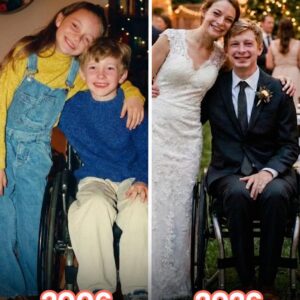My daughter Lily absolutely adores her aunt Mia. They’ve always had a special bond—bookstore trips, surprise milkshakes after school, and spontaneous dance parties in Mia’s apartment. So when Mia texted me saying she wanted to take Lily out for the afternoon, I didn’t think twice. It was just another fun aunt-niece day… or so I thought.
But when Lily came home, I instantly knew something was wrong. She barely whispered a hello, didn’t look either me or her dad in the eye, and hurried straight to her room. I assumed she was tired—maybe they had a long day. But later, when I went to check on her, I heard muffled sobs through the door. My heart dropped. I rushed in and found her curled up on her bed, shaking. When I asked what was wrong, she hesitated, her voice trembling as she said, “Mom… Aunt Mia… she made fun of me…”
My mind went wild. Made fun of her? What did that even mean? Through tears, Lily explained that they had gone shopping, and Mia had taken her to a clothing store. Lily had picked out a dress she loved, twirling in front of the mirror with excitement. But Mia had apparently laughed and said loudly, “That’s not flattering on you—you’re not built for dresses like that.” Lily, who has always been self-conscious about her developing body, felt embarrassed as other shoppers looked their way. Mia even tried to squeeze Lily into smaller clothes “for fun,” calling her “dramatic” when she got upset. Lily said she held back tears the whole drive home—but couldn’t anymore once she felt safe in her room.
Anger exploded in my chest. How could Mia say something so careless, so cruel? I immediately called her. My voice shook as I asked for an explanation. She sighed, sounding confused, and said, “I didn’t mean to hurt her—I was just teasing. I thought we were joking around. She didn’t say anything.” I told her firmly that Lily wasn’t an adult friend—she was a sensitive 11-year-old girl trusting her aunt. I hung up after saying we needed time apart.
Later that night, Lily came to me and whispered, “Do you think I look weird in dresses?” I hugged her tightly and told her she was beautiful exactly as she was. We spent the rest of the evening watching her favorite movie and doing face masks, and slowly, I saw her smile again.
A few days later, Mia showed up at our door with puffy eyes and a bag in her hand. She asked if she could talk to Lily. I stood nearby as Mia knelt in front of her and, with tears streaming down her face, said, “I hurt you because I thought teasing was harmless. I was wrong. I never wanted you to feel ashamed or uncomfortable in your own skin. You’re perfect just the way you are, and I’m so sorry I made you feel otherwise.”
Lily hesitated, then hugged her. They both cried. And after a long talk—filled with understanding rather than anger—I realized Mia wasn’t malicious. She was thoughtless. And sometimes, thoughtlessness can wound just as deeply. But accountability and genuine remorse can be the first stitches in healing that wound.
I’m still protective, still cautious—but I’m learning forgiveness doesn’t mean forgetting. It means trusting that someone is willing to grow.
And seeing my daughter walk confidently out the door in her favorite dress today, smiling, I know we’re on the right path.





